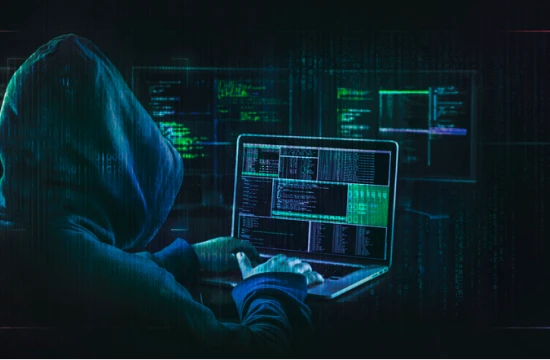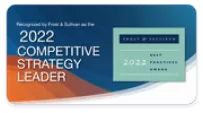Understanding the Dark Web
The Dark Web is a hidden part of the internet that exists beyond the reach of conventional search engines and browsers. Unlike the surface web, which is accessible to anyone using standard tools like Google or Bing, the Dark Web requires special software, such as Tor or I2P, to access. This layer of the internet is intentionally hidden, using encryption and anonymity to shield its users and content from prying eyes.
The Dark Web is often associated with illegal activities, but its scope goes beyond this narrow perception. It serves as a haven for individuals seeking privacy and freedom of expression, particularly in regions where censorship is prevalent. Journalists, activists, and whistleblowers use the Dark Web to communicate and share information anonymously, ensuring their safety in oppressive environments.
However, the Dark Web also harbors a darker side. Its encrypted networks and anonymity attract cybercriminals, making it a marketplace for illicit goods and services. From stolen data and counterfeit documents to hacking services and illegal substances, the Dark Web facilitates transactions that evade legal oversight. This shadowy commerce has made it a focal point for law enforcement agencies and cybersecurity professionals worldwide.
Understanding the Dark Web also involves recognizing its distinction from the Deep Web. The Deep Web refers to parts of the internet not indexed by search engines, such as private databases, academic journals, and subscription-only websites. The Dark Web, in contrast, specifically refers to intentionally concealed websites accessible only with specialized tools.
Navigating the Dark Web requires caution and awareness. While it can offer privacy and security benefits, it also exposes users to significant risks, including malware, scams, and legal consequences. For businesses and individuals alike, understanding the dynamics of the Dark Web is essential for maintaining cybersecurity and safeguarding sensitive information in today’s digital age.
The Future of the Dark Web
The Dark Web is an ever-evolving digital landscape, continually shaped by technological advancements, societal trends, and regulatory efforts. Its future holds both promise and peril as it intersects with the changing priorities of privacy, cybersecurity, and digital innovation. Understanding the trajectory of the Dark Web is critical for businesses, governments, and individuals seeking to navigate the complexities of the modern internet.
- Increased Use of Advanced Encryption TechnologiesAs concerns over privacy grow, the adoption of advanced encryption technologies is likely to expand. The Dark Web, built on layers of encryption, will continue to attract users seeking anonymity. Emerging technologies like quantum encryption could further enhance the security of Dark Web communications, making them even harder to monitor or regulate. This shift could empower both legitimate users—such as activists and journalists—and malicious actors, like cybercriminals, who exploit anonymity for illegal activities.
- Greater Accessibility and AdoptionTools for accessing the Dark Web, such as Tor and I2P, are becoming more user-friendly, which could lead to broader adoption. As more individuals and organizations seek alternatives to traditional internet platforms dominated by surveillance and data tracking, the Dark Web may emerge as a viable option for secure communication and data sharing. However, this increased accessibility also poses risks, as uninformed users may fall victim to scams or malware.
- Integration with Decentralized TechnologiesThe rise of decentralized technologies, such as blockchain, is poised to influence the Dark Web significantly. Cryptocurrencies, already a cornerstone of Dark Web transactions, are expected to evolve with enhanced privacy features, further facilitating anonymous commerce. Decentralized platforms and applications could also provide new avenues for hosting content and services on the Dark Web, bypassing traditional regulatory frameworks.
- Enhanced Cybersecurity ChallengesAs the Dark Web grows, it will remain a critical battleground for cybersecurity professionals. The proliferation of sophisticated malware, ransomware-as-a-service platforms, and stolen data markets will demand advanced tools and strategies to counter these threats. Organizations will need to invest in real-time threat intelligence and monitoring solutions to stay ahead of Dark Web-driven risks.
- Regulation and Law Enforcement EffortsGovernments and international organizations are intensifying efforts to regulate and monitor Dark Web activities. Enhanced cooperation between law enforcement agencies, advancements in tracking technologies, and crackdowns on illicit marketplaces have already resulted in significant disruptions. However, these efforts are met with resistance, as the decentralized nature of the Dark Web makes complete regulation virtually impossible. The future may see a delicate balance between safeguarding user privacy and combating criminal activity.
- Ethical and Moral DebatesThe Dark Web raises profound ethical and moral questions about privacy, free speech, and the limits of government surveillance. As its use expands, society will need to grapple with these issues. For example, how can we protect the privacy of individuals while preventing the Dark Web from being exploited for harm? These debates will shape the policies and technologies that influence the Dark Web’s evolution.
- The Role of Artificial Intelligence (AI)AI is expected to play a pivotal role in the future of the Dark Web. On the one hand, AI-driven tools can help identify and neutralize illicit activities more efficiently. On the other hand, cybercriminals may use AI to develop more advanced tools for obfuscation, phishing, and malware delivery. The interplay between AI and the Dark Web will significantly impact the broader cybersecurity landscape.
- The Potential for Positive ApplicationsDespite its challenges, the Dark Web has potential for positive applications. It offers a refuge for individuals in oppressive regimes, a platform for whistleblowers to expose corruption, and a channel for secure communication in critical situations. As awareness grows, efforts may emerge to harness the Dark Web’s benefits for societal good while mitigating its risks.
- ConclusionThe future of the Dark Web is a complex interplay of innovation, regulation, and ethical considerations. While it will likely continue to serve as a haven for privacy advocates and a tool for malicious actors, its trajectory will depend on the evolving dynamics of technology and society. For individuals, organizations, and governments, staying informed about these developments will be essential to navigating the opportunities and challenges posed by this hidden layer of the internet.






